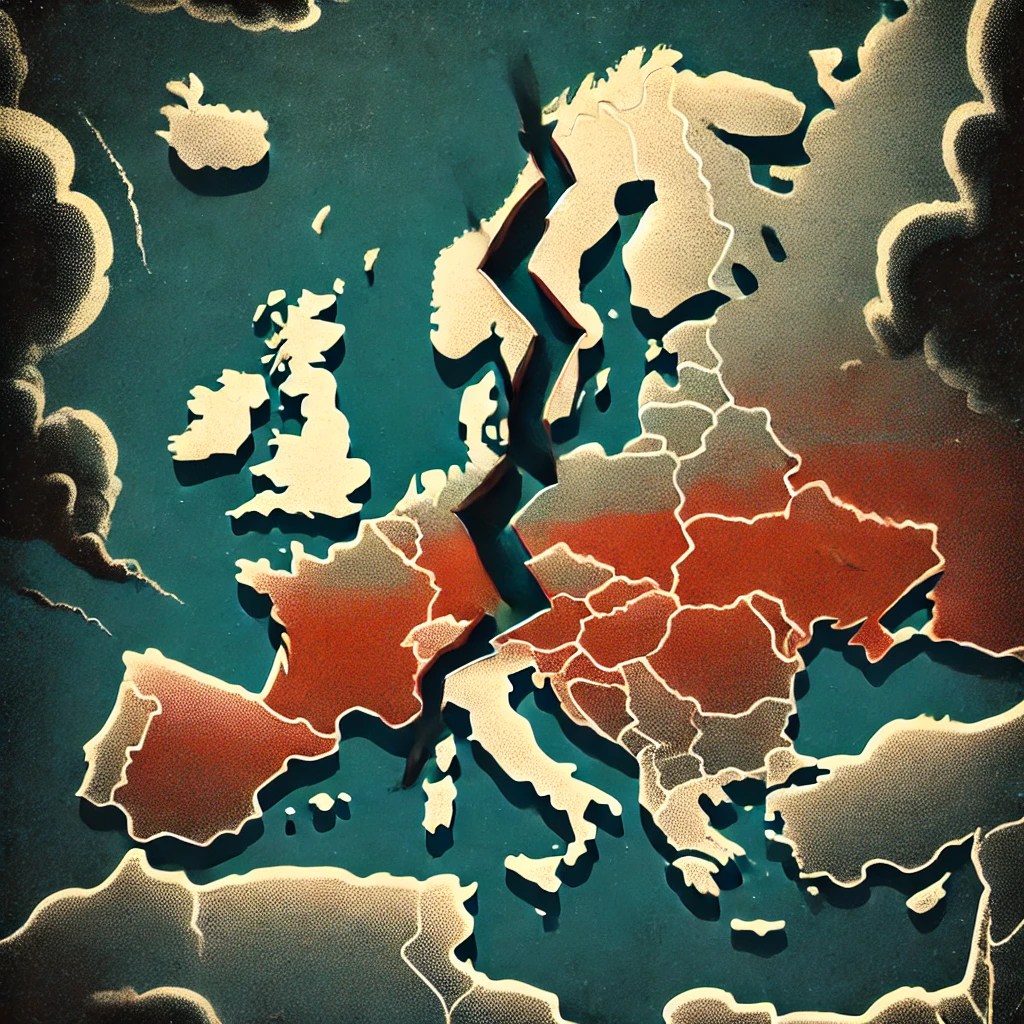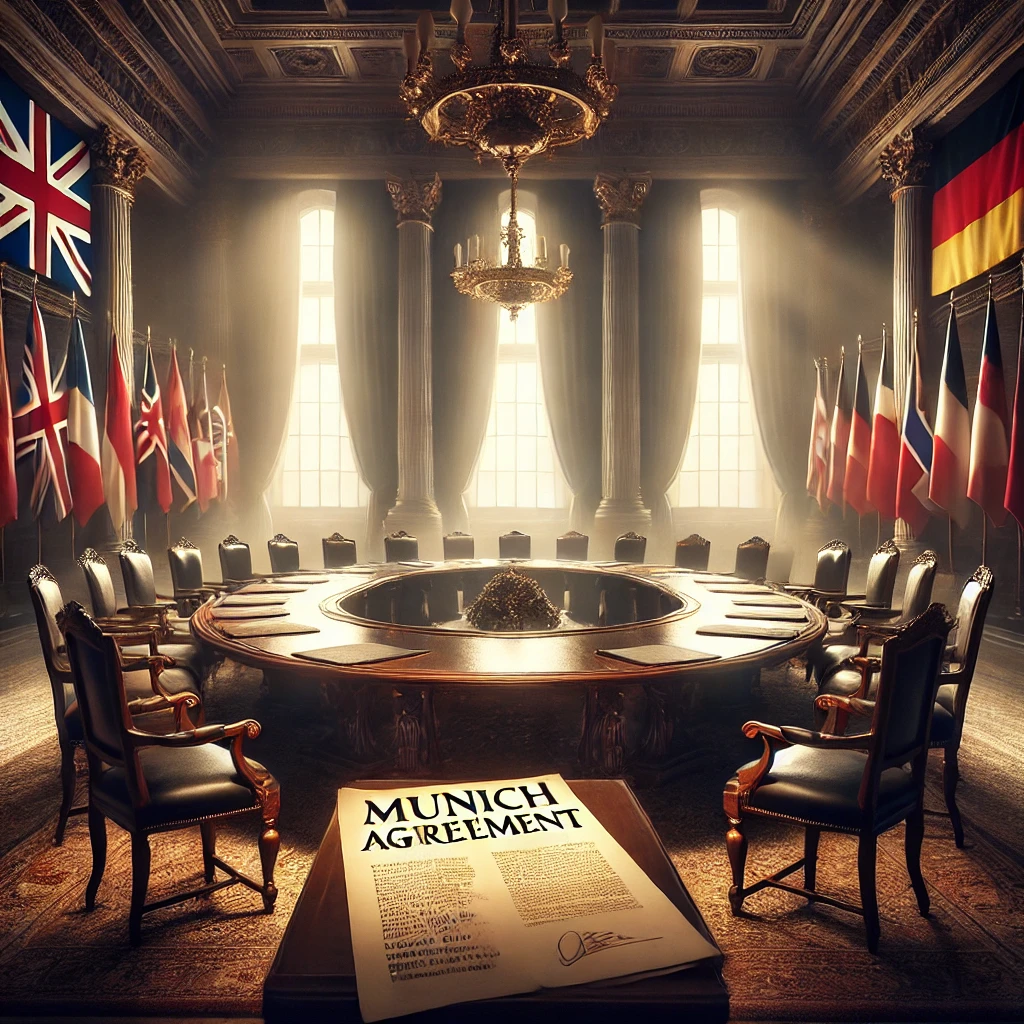On September 30, 1938, the Munich Agreement was signed, a pivotal moment in the lead-up to World War II. This notorious accord, facilitated by British Prime Minister Neville Chamberlain and French leaders, aimed to appease Adolf Hitler by allowing Nazi Germany to annex the Sudetenland region of Czechoslovakia. While the agreement was intended to prevent conflict, it ultimately emboldened Hitler and set the stage for further aggression, demonstrating the dangers of appeasement in international relations.

The Context of the Munich Agreement
The Munich Agreement emerged against a backdrop of rising tensions in Europe during the late 1930s. After World War I, Germany was left in a state of economic turmoil and national humiliation due to the Treaty of Versailles. Adolf Hitler, who came to power in 1933, capitalized on these sentiments, promoting a message of nationalism and the restoration of Germany’s former glory. His aggressive expansionist policies aimed to unite all German-speaking peoples, leading to demands for the Sudetenland, a region with a significant ethnic German population in Czechoslovakia.
As Hitler’s ambitions became increasingly clear, European leaders found themselves grappling with the prospect of another devastating war. Chamberlain, along with French Premier Édouard Daladier, believed that conceding to some of Hitler’s demands could avert a larger conflict. Their decision to negotiate rather than confront the Nazi regime reflected a widespread hope that diplomacy could maintain peace in a volatile Europe.

The Terms and Reception of the Agreement
The Munich Agreement allowed Nazi Germany to annex the Sudetenland without any military intervention from Britain or France. In return, Hitler promised that he had no further territorial ambitions in Europe. Chamberlain famously declared that the agreement would bring “peace for our time,” a statement that would soon be seen as tragically misguided. The leaders of Britain, France, and Italy signed the agreement, believing they had achieved a diplomatic solution to the crisis.
However, the reaction to the Munich Agreement was mixed. While some applauded the effort to maintain peace, many others criticized it as a dangerous capitulation to tyranny. Czechoslovakia, which had been left out of the negotiations, was forced to cede its territory without any say in the matter, leading to feelings of betrayal and vulnerability. The agreement emboldened Hitler, who interpreted the lack of resistance as a signal to pursue further aggression.
The Consequences of Appeasement
The Munich Agreement had profound and immediate consequences for Europe. Rather than preventing war, it set a precedent for further Nazi expansion. In March 1939, just a few months after the agreement, Hitler violated its terms by occupying the rest of Czechoslovakia. This blatant disregard for diplomatic commitments revealed the limitations of appeasement and the dangers of underestimating authoritarian regimes.

The agreement is often cited as a critical misstep in the lead-up to World War II, as it failed to confront the growing threat posed by Nazi Germany. It encouraged other aggressive actions by Hitler, ultimately culminating in the invasion of Poland in September 1939, which triggered the outbreak of the war. The lessons learned from Munich would inform international relations for decades to come, particularly the need for a firm stance against aggression.
A Legacy of Caution in Diplomacy
The legacy of the Munich Agreement continues to resonate in contemporary discussions about international diplomacy and conflict resolution. The term “Munich” has become synonymous with the failures of appeasement, often invoked in debates about how to handle authoritarian regimes and aggressive nations. The lessons from 1938 serve as a reminder of the importance of standing firm against threats to peace and stability.
The signing of the Munich Agreement on September 30, 1938, marked a significant moment in the history of diplomacy and international relations. While intended to prevent conflict, it ultimately emboldened aggression and set the stage for World War II. The agreement serves as a powerful reminder of the dangers of appeasement and the necessity of confronting threats to peace. As we reflect on this pivotal event, we recognize its lasting impact on global politics and the ongoing need for vigilance in the face of tyranny. The lessons learned from Munich continue to inform our understanding of how to navigate the complexities of an ever-changing world.
